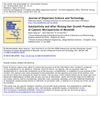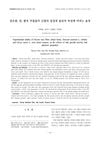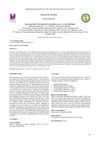 41 citations,
July 2002 in “Clinical and Experimental Dermatology”
41 citations,
July 2002 in “Clinical and Experimental Dermatology” Effective hair loss assessment requires a mix of precise measurement methods.
 25 citations,
August 2016 in “Journal of Cosmetic Dermatology”
25 citations,
August 2016 in “Journal of Cosmetic Dermatology” The marine complex supplement significantly improved hair growth in men with thinning hair without adverse effects.
 24 citations,
January 2003 in “Drug Delivery”
24 citations,
January 2003 in “Drug Delivery” Minoxidil-containing vesicles improve hair growth.
 7 citations,
July 2022 in “Pharmaceuticals”
7 citations,
July 2022 in “Pharmaceuticals” Pumpkin Seed Oil in niosomes may help treat hair loss and improve hair growth.
 2 citations,
April 2008 in “Journal of Dispersion Science and Technology”
2 citations,
April 2008 in “Journal of Dispersion Science and Technology” Shampoos with more than 0.6% of cationic minoxidil particles can promote hair growth.

False daisy is a medicinal herb with many health benefits, including hair growth promotion.
 8 citations,
January 2016 in “Evidence-based Complementary and Alternative Medicine”
8 citations,
January 2016 in “Evidence-based Complementary and Alternative Medicine” Rumex japonicus extract may promote hair growth more effectively than Minoxidil.
 6 citations,
October 1997 in “CNS Drugs”
6 citations,
October 1997 in “CNS Drugs” Psychotropic drugs can cause hair loss or excessive hair growth.
 3 citations,
October 2018 in “Skin appendage disorders”
3 citations,
October 2018 in “Skin appendage disorders” New treatment reduces hair shedding and increases hair density in women with early hair loss.
 1 citations,
January 2010 in “Journal of Oriental Medicine”
1 citations,
January 2010 in “Journal of Oriental Medicine” Black bean, wheat, and rice bran extracts can boost hair growth and improve hair quality.
 July 2024 in “Scholars Journal of Medical Case Reports”
July 2024 in “Scholars Journal of Medical Case Reports” Combining low-level laser therapy and exosome therapy promotes hair growth.
 August 2021 in “Journal of Fundamental and Applied Pharmaceutical Science”
August 2021 in “Journal of Fundamental and Applied Pharmaceutical Science” Black tea extract at 5% concentration promotes the most hair growth.
 22 citations,
January 2015 in “Dermatology Research and Practice”
22 citations,
January 2015 in “Dermatology Research and Practice” An extra-strength marine protein supplement helped increase hair growth and decrease hair shedding in women with thinning hair.
 12 citations,
September 2014 in “Journal of Food Science and Nutrition”
12 citations,
September 2014 in “Journal of Food Science and Nutrition” Platycarya strobilacea extract is a strong antioxidant that can grow hair better than minoxidil.
 12 citations,
March 2014 in “ISRN Pharmacology (Print)”
12 citations,
March 2014 in “ISRN Pharmacology (Print)” Minoxidil with tretinoin boosts hair growth most effectively, followed by minoxidil alone, and then ketoconazole.
 January 2024 in “International Research Journal Of Modernization In Engineering Technology And Science”
January 2024 in “International Research Journal Of Modernization In Engineering Technology And Science” Hair growth serums reduce hair fall and improve growth with mostly positive reviews.
 25 citations,
November 2015 in “Journal of Ethnopharmacology”
25 citations,
November 2015 in “Journal of Ethnopharmacology” Certain Chinese herbs, especially Cacumen platycladi, can promote hair regrowth and reduce hair loss-related hormone levels in mice.
 6 citations,
January 2020 in “Skin Pharmacology and Physiology”
6 citations,
January 2020 in “Skin Pharmacology and Physiology” HIF-1α stimulators, like deferiprone, work as well as popular hair loss treatments, minoxidil and caffeine, in promoting hair growth.
 1 citations,
May 2014 in “Hair transplant forum international”
1 citations,
May 2014 in “Hair transplant forum international” Rogaine can stop hair loss in women, and other treatments like certain pills, light therapy, and special shampoos may also work.
 July 2024 in “Forum Dermatologicum”
July 2024 in “Forum Dermatologicum” Topical treatments for hair loss can be effective but need careful safety evaluation.
 42 citations,
November 2005 in “The journal of investigative dermatology. Symposium proceedings/The Journal of investigative dermatology symposium proceedings”
42 citations,
November 2005 in “The journal of investigative dermatology. Symposium proceedings/The Journal of investigative dermatology symposium proceedings” New hair products are being developed to keep hair and scalp healthy for everyone.
 5 citations,
January 2019 in “Clinical Drug Investigation”
5 citations,
January 2019 in “Clinical Drug Investigation” Some off-label treatments increase hair density, but long-term safety unknown.
 January 2025 in “Biomedical Engineering Letters”
January 2025 in “Biomedical Engineering Letters” MXD@CP could be a promising new topical treatment for hair loss.
 3 citations,
October 1988 in “Clinics in Dermatology”
3 citations,
October 1988 in “Clinics in Dermatology” Using 3% topical minoxidil can help women with hair loss, but more research is needed.
 1 citations,
December 2011
1 citations,
December 2011 Marine-derived ingredients show potential for hair health but need more human trials to confirm effectiveness.
 September 2019 in “International journal of research in ayurveda and pharmacy”
September 2019 in “International journal of research in ayurveda and pharmacy” Ayurvedic treatment with Bhringraj Vati and coconut oil was safe and effective for reducing hair fall.
22 citations,
March 2017 in “Journal of the Formosan Medical Association” The guidelines help doctors manage skin problems from certain cancer treatments to improve patients' lives.
 7 citations,
December 2021 in “Pharmaceutics”
7 citations,
December 2021 in “Pharmaceutics” Natural products like plant extracts can help promote hair growth and could be used to treat hair loss.

The polyherbal hair mask is a safe and effective alternative for improving hair health.
 November 2023 in “International Journal of Cosmetic Science”
November 2023 in “International Journal of Cosmetic Science” Wheat polar lipid complex reduces hair loss and improves hair growth in women.





























